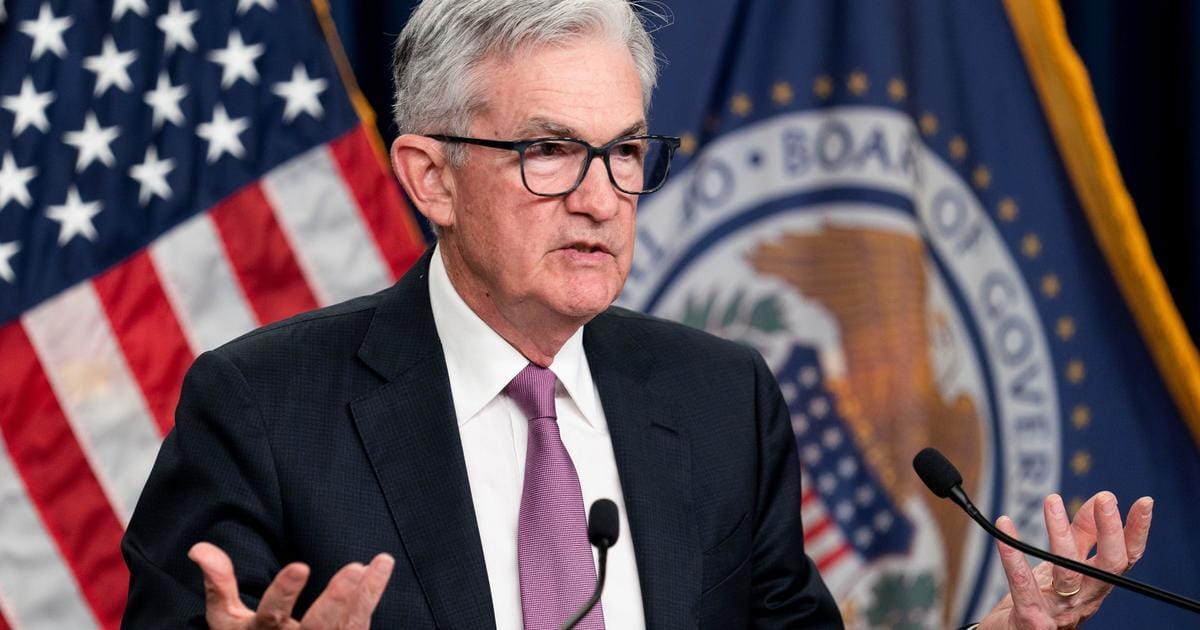- ResiClub
- Posts
- Mortgage rates dip as markets react to Fed's anticipated rate cuts in 2024
Mortgage rates dip as markets react to Fed's anticipated rate cuts in 2024
On Wednesday, Fed Chair Powell said rate cuts are something that “begins to come into view” and “clearly is a topic of discussion.”

Today’s letter is brought to you by DealTracker!
DealTracker is the ultimate real estate solution for finding the best investment properties across the United States. Their AI-powered platform analyzes tens of thousands of homes daily and sends you the best ones, based on your custom filters.
DealTracker helps companies to:
- Spend less money
- Assess the entire market every morning in a matter of minutes
- Protect themselves from human error
Simply login, set your criteria, and watch as DealTracker generates a spreadsheet of curated properties just for you. Sign up for a free trial now and see how dealtracker.ai can improve your business today.
Speaking to reporters on Wednesday, Fed Chair Jerome Powell acknowledged that the Federal Reserve—which has a dual mandate from Congress to maintain "maximum employment" and "stable prices"—has made “real" progress” on the inflation front. Powell added that Federal Funds rate cuts are something that “begins to come into view” and “clearly is a topic of discussion.”
While long-term rates, such as mortgage rates, aren't directly set by the Fed, they do fluctuate based on financial market expectations of where short-term rates set by the Fed and the U.S. economy are headed. That’s presumably why long-term rates, including mortgage rates, fell on Wednesday after the Fed said that the median FOMC member foresees three cuts to the Federal Funds rate in 2024.
The average 30-year fixed mortgage rate, as calculated by Mortgage News Daily, fell from 7.09% to 6.82% on Wednesday, marking its lowest reading since mid-May and a considerable decrease from the October high of 8.03%.
For perspective, if a borrower took out a $500,000 mortgage at a 8.03% rate, they’d get a monthly principal and interest payment of $3,679. But if a borrower took out that same 30-year loan at a 6.82% rate, they’d get a monthly principal and interest payment of $3,266.
Regarding Fed policy, there are two big outstanding questions for the U.S. housing market: Will the Federal Reserve successfully engineer a soft landing for the U.S. economy, and where will mortgage rates hover in 2024?
Historically speaking, the U.S. economy typically enters a recession not long after the Fed concludes its rate hikes and initiates interest rate cuts, as the effects of the rate-hiking cycle truly begin to take hold.
On Wednesday, Powell acknowledged those recession concerns but also pointed out that the U.S. economy has proven more resilient than expected so far, suggesting that this time might be the exception.
“I have always felt since the beginning that there was a possibility because of the unusual [post-pandemic] situation that the economy could cool off in a way that enabled inflation to come down without the kind of large job losses that have been associated with high inflation and tightening cycles. So far that’s what we’re seeing, that is what many forecasters on and off the committee are seeing. This result [of a soft landing] is not guaranteed. It is far too early to declare victory and there are certainly risks. It is certainly possible that the economy behaves in an expected way—it has done that repeatedly in the post-pandemic period,” Powell told reporters on Wednesday.
After the presser on Wednesday, KPMG chief economist Diane Swonk tweeted that: “Powell pivots. The Fed is done. The Fed is letting the bond market stimulate the economy without cutting rates…The money statement by Powell was ‘we’re aware of the risk we would hang on too long’ and cause more harm to the economy. The Fed has done a 180 and is now willing to allow the economy to pick up after what looks to be a weak fourth quarter, rather than risk a worse slowdown.”
Over the past two months, financial markets have been easing—with the 10-year Treasury yield falling from 5.02% in October to 3.98% on Wednesday—as inflation data continued to come in soft and investors priced in looming 2024 Fed rate cuts.
Bill Gross, the co-founder of PIMCO, whose nickname on Wall Street is the “Bond King,” tweeted out on Wednesday that “Forecasts of 3% 10-year [Treasury yield] in 2024 are farcical. If Fed funds rest at 3% then 10-year [Treasury yield] average term premium of 1.1 indicates at 4% that we are there.”
If Gross is right, and the 10-year Treasury yield holds at 4.00% next year, then the average 30-year fixed mortgage rate would be 6.80%, given today’s historically wide spread (285 bps). At a normalized spread of 175 bps, that’d mark a 5.75% average 30-year fixed mortgage rate in 2024.
ResiClub will do a deeper dive on the “spread” later this month.
Nothing in this newsletter is financial advice. Please do your own research.